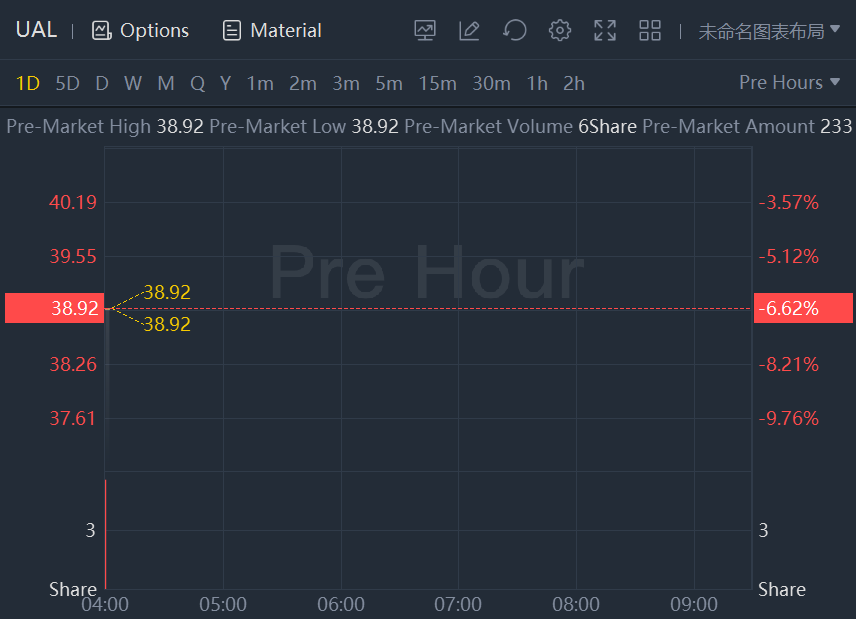United Airlines shares tumbled 6.6% in premarket trading after the carrier reported earnings that fell short of Wall Street’s expectations and cuts 2023 growth plans.
United Airlines Holdings Inc. is limiting flying for the rest of this year and curtailing growth plans in 2023 to try to get a handle on flight disruptions that have roiled the industry, even as it continues to expect profits amid robust travel demand.
The carrier revealed the latest capacity outlook Wednesday as it reported earnings that fell short of Wall Street’s expectations. That dragged down shares across the industry and tarnished results from United’s first profitable quarter in more than two years.
Flight delays and cancellations have battered the US industry this year as consumers starved for travel during the pandemic have forked over higher fares and crammed onto aircraft. The disruptions, fueled in part by labor shortages and air traffic control issues, have boosted costs as carriers seek to recover from two years of losses. Now concerns are rising that inflation could quash demand.
“Industrywide operational challenges that limit the system’s capacity, record fuel prices and the increasing possibility of a global recession are each real challenges,” Chief Executive Officer Scott Kirby said in a statement. “These fundamental challenges have already led to higher costs, higher fuel prices, but also higher revenue.”
Flying capacity this year will be 13% below pre-pandemic levels, the Chicago-based carrier said in a regulatory filing. Capacity in 2023 will be no more than 8% higher than 2019, far short of the 20% jump United had previously planned. The reductions won’t change the airline’s expectations for continued profit -- including for the full year -- as it sees solid pricing and even stronger demand extending into this quarter.
United’s adjusted profit was $1.43 a share, ending a string of nine consecutive quarterly losses but still falling short of the $1.88 average of analysts’ estimates compiled by Bloomberg. The difference largely was caused by jet fuel prices that surged after the Russian - Ukraine war in February. Record revenue of $12.1 billion narrowly topped expectations.
Non-fuel costs for each seat flown a mile rose 17% above 2019 levels in the second quarter, and will rise as much as 17% again this quarter. The measure is a gauge of operating efficiency for carriers. Revenue on a seat-mile basis rose 24% from three years ago, and United sees about the same improvement in the third quarter.
“While the company anticipates the economy will slow in the near to medium term, the continuing pandemic recovery is more than offsetting economic headwinds -- leading to expected revenue and earnings acceleration in the third quarter,” United said in the statement.
A group of 11 US carriers should report record quarterly revenue of $53.3 billion and combined pretax income of $4.2 billion for the three months ended June 30, according to Deutsche Bank analyst Michael Linenberg.

Comments